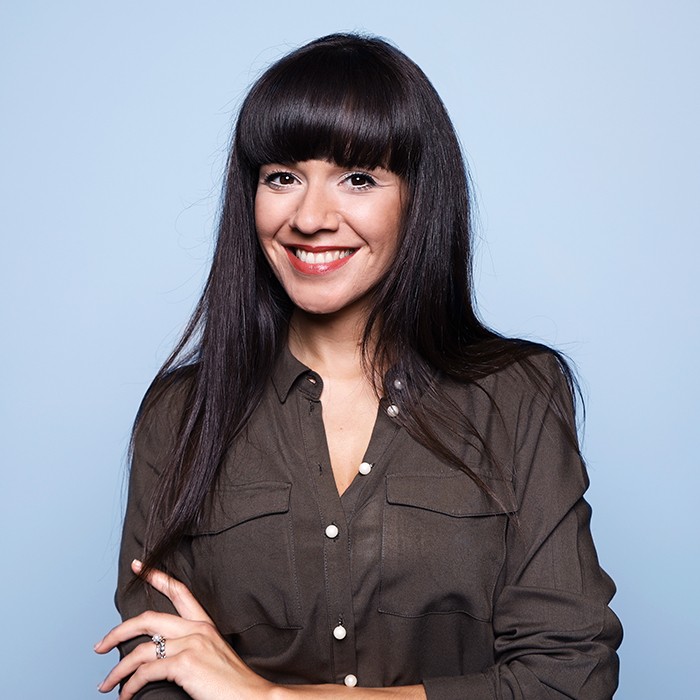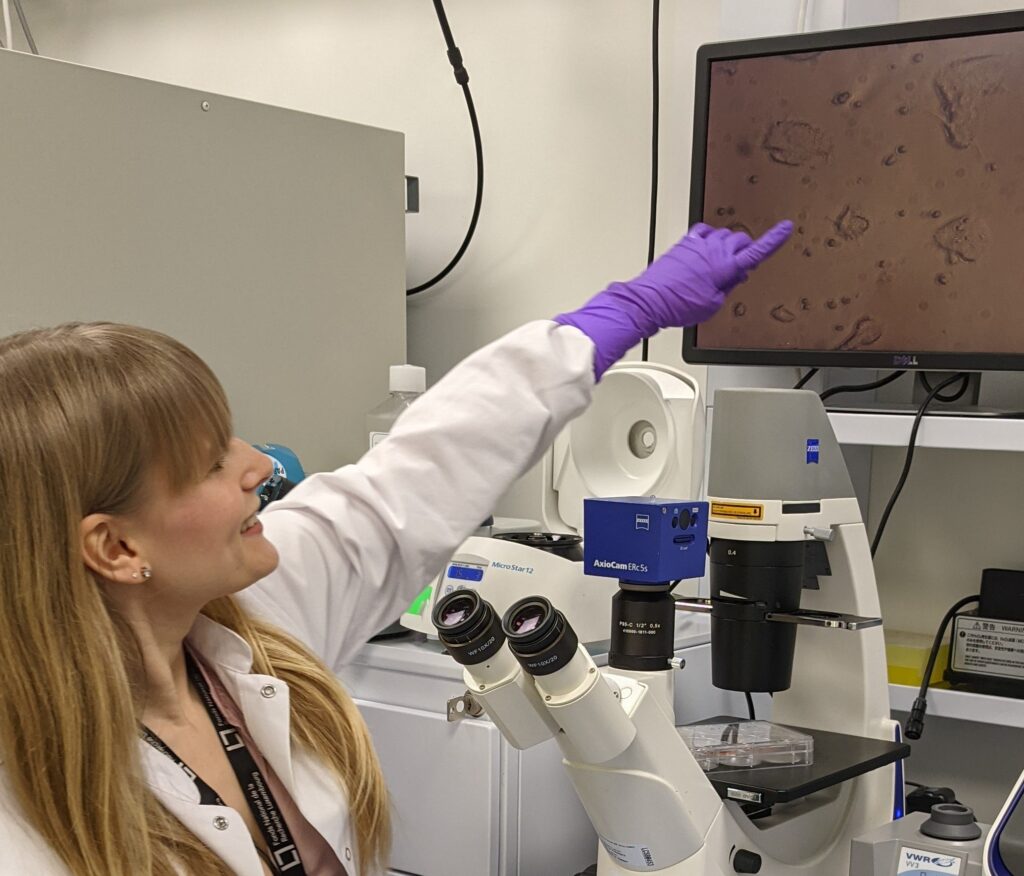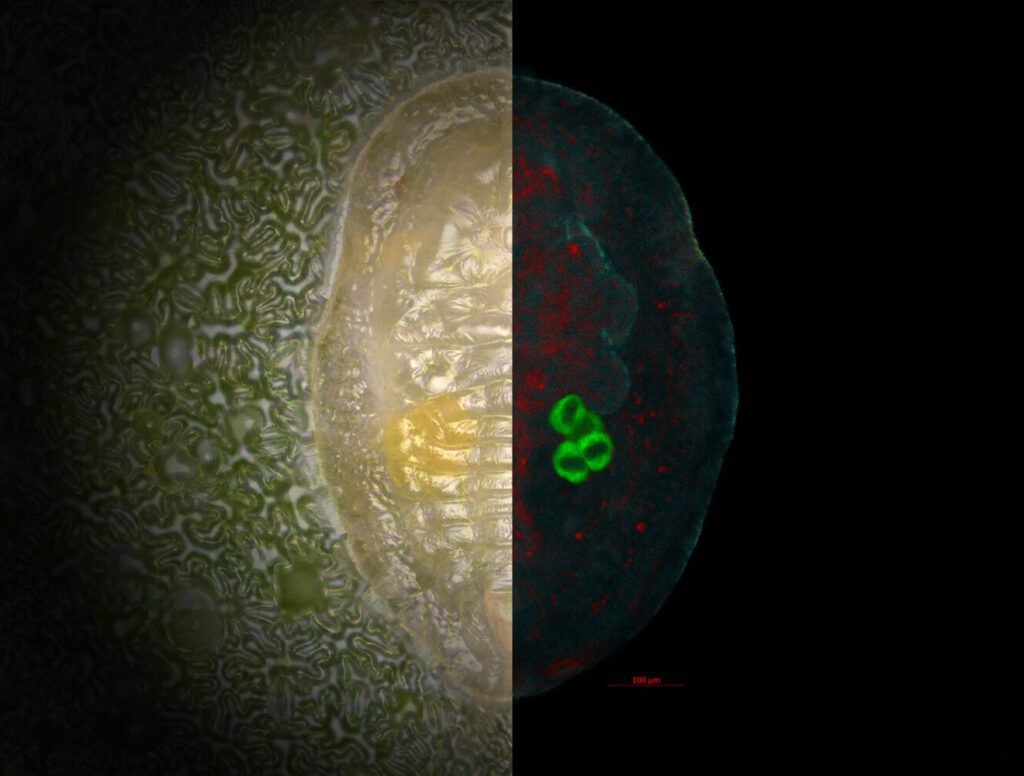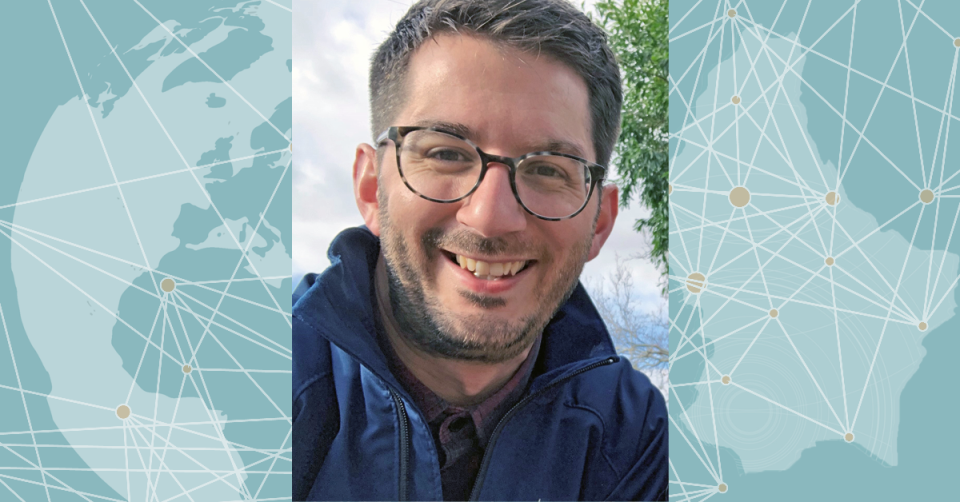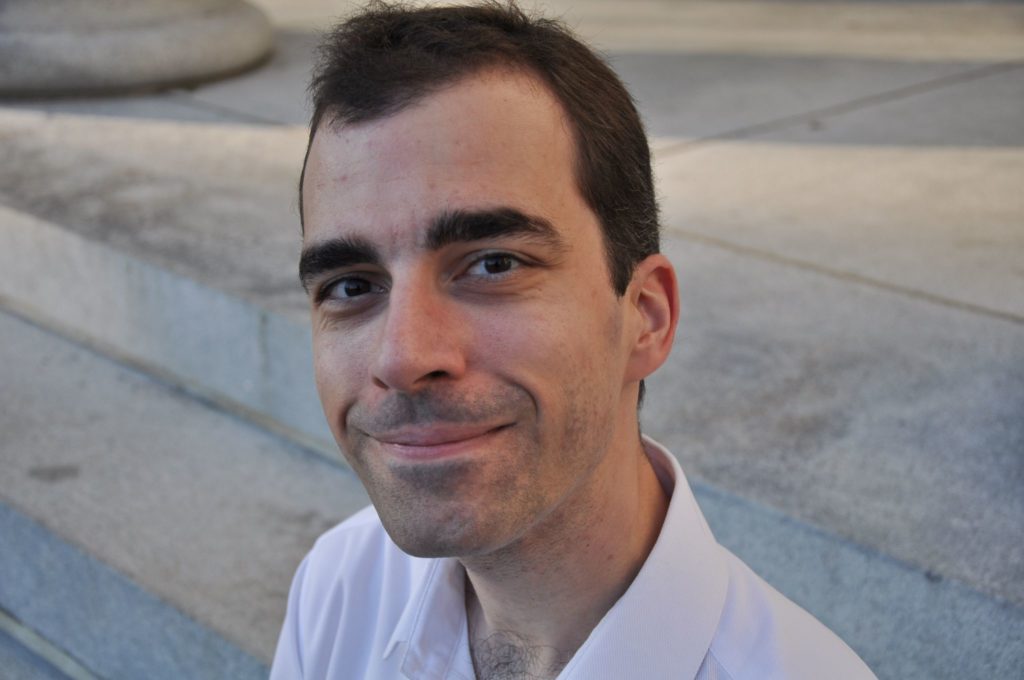Nina Hentzen, an organic chemist working on the chemical synthesis of collagen, is fascinated by research at the interface of chemistry and biology. The Luxembourg national is in the second year of her AFR PhD at ETH Zürich – and has just been selected to attend the renowned 2017 Lindau Nobel Laureate Meeting.
Collagen is the most abundant protein in the body of mammals, making up around 1/3 of the protein in our bodies, and is important for medical purposes, as Nina Hentzen explains:
“This protein is employed for medical applications, such as wound healing and coating of implants, and is an important component of cell culture systems and tissue engineering studies.”
Finding a way to synthesize collagen
At the moment, collagen is extracted from animal sources. This does not only mean that it can lead to undesired reactions in humans, but also that it varies from batch to batch. Therefore, there is a need to synthetically produce collagen that can be “custom-made” to meet the medical requirements. Nina explains the challenge and how her work feeds into this:
“The main challenge in the chemical synthesis of collagen is mimicking the complex fibrous structure of this protein that arises from folding of single protein strands into triple helices, and further bundling into fibers. This is exactly what I am working on: equipping short collagen mimetic peptides with functional groups that program them towards self-assembly into large fibers.” Essentially, Nina’s research focuses “on the bottom-up design of synthetic collagen, aiming at developing chemical systems that mimic the fibrous structure of natural collagen for applications in material science and regenerative medicine.”
“I like to start early in the morning by accomplishing the ‘deep’ work that requires my full attention. This includes interpreting results that I recently obtained, figuring out my next steps based on these results, and devising alternative strategies. My morning routine also comprises writing research papers or proposals, and preparing presentations. Then I turn towards the practical part, which consists of performing synthesis and analysis of new products by various techniques”, Nina explains when asked what a typical day looks like for her.
“The adventure of discovering the broad dimensions of chemistry”
For many people, chemistry at school level was likely fun when it came to performing experiments, but less enjoyable when it was time to address the theoretical part explaining why the components of the experiment acted the way they did. So what made Nina choose to become a researcher in chemistry and what is her vision of a future career?
“The diversity of chemistry and the ability to construct and precisely tailor chemical systems by molecular building blocks are key to my fascination for this natural science. After my master studies, I decided to pursue a PhD to embark on the adventure of discovering the broad dimensions of chemistry in a curiosity-driven, independent and challenging way.”
“I would like to pursue a career where I can carry out creative and innovative research that drives important advances in biology/medicine or material science. Chemistry provides an immense toolbox that can be used for the precise design of synthetic scaffolds at the molecular level.”
Fascination with the domain of her research and a drive to help push advances in her field is key, but it is not the only aspect of her work as a researcher that Nina cherishes, the transferable skills, environment and colleagues are also important:
“Once a week we meet as a group and two colleagues present their latest results, followed by an interactive discussion. Outside of these meetings, I often discuss challenges encountered during research with my labmates and my PI, which is always helpful and inspiring.
“I enjoy the international environment of academia, which allows me to interact with scientists from different backgrounds, and to gain experience abroad. My research activities are also a great opportunity to expand my management, communication and teaching skills.”
Bright future for Nina and research in Luxembourg
Nina is originally from Luxembourg, but left her home country to pursue her studies in Switzerland (ETH Zürich). Although she plans on staying abroad for a few more years, she has not turned her back on Luxembourg for good, seeing a possible return to the Grand Duchy in the future. She is also impressed with how quickly the research in Luxembourg is taking shape and putting itself on the map:
“I am excited about the extensive efforts taking place in Luxembourg to promote innovation and research in the natural sciences. Currently, I am very glad to benefit from the AFR PhD program of the Luxembourg National Research Fund, which generously supports my PhD studies and allows me to expand my perspectives by attending international conferences, such as the upcoming Lindau Nobel Laureate Meeting.
“After my PhD, I plan on spending a few years in a foreign country, but I will consider permanent job opportunities in Luxembourg, where academia is evolving at an amazing pace and will certainly attract a broad range of chemical and biotechnological companies in the near future.”
Published 10 March 2017
About Spotlight on Young Researchers
Spotlight on Young Researchers is an FNR initiative to highlight early career researchers across the world who have a connection to Luxembourg. This article is the first in a series of around 20 articles, which will be published on a weekly basis. You can see more articles below as and when they are published.



